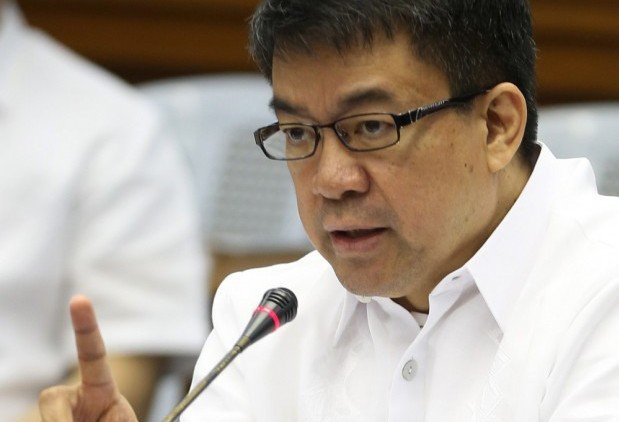Senate President Aquilino Pimentel III has called for a legislative investigation into the current leadership of the private entity tasked to manage the country’s affairs with Taiwan for possible violations of the Philippines’ “One China policy.”
Citing the importance of pursuing good relations between the Philippines and China given unresolved territorial disputes in the South China Sea, Pimentel asked the Senate committee on foreign relations to launch an inquiry into the status of the Manila Economic and Cultural Office (Meco) for apparent actions of its new leadership that “may prove to be in violation of the country’s policy,” where Taiwan is considered a province of China.
Under such policy, Meco, a private corporation representing the Philippines, is limited to pursuing a “person to person relationship” with the people of Taiwan. It is not allowed to undertake diplomatic functions, as such would imply a regard for Taiwan as a separate nation.
As its counterpart, Taiwan maintains a Taiwan Economic and Cultural Office in Manila.
In his resolution, Pimentel noted how Meco’s new management has threatened to force the resignation of regular employees from the past administration despite their tenure. For the Senate leader, the long-time employees may not be considered political appointees who must leave when there is a change in government leadership.
Pimentel did not mention a particular official in his resolution. Meco is now headed by President Rodrigo Duterte’s appointee as its Managing Director and Resident Representative, Angelito Banayo, the former National Food Authority (NFA) chief.
READ: Banayo gets Meco post; Maza named to head NAPC
“There have been reports that recent actuations of the “new management” of Meco may prove to be in violation of the “One China Policy,” Pimentel said in Senate Resolution No. 302.
“Allegedly, Meco has begun treating its regular employees as mere political appointees of government who are coterminus with the former administration, with some of them reportedly forced to resign or retire to give the ‘new management’ a free hand to appoint their own people,” he said.
Pimentel cited a Feb. 4, 2014 Supreme Court that declared Meco a “non-governmental entity.” This gives its employees “security of tenure in accordance with the Constitution and existing labor laws.”
He said Meco employees “should not be removed for the reason of giving the “new management” the right to appoint people in accordance with wishes of the Philippine government or its political appointees.”
Pimentel also cautioned that the new Meco management’s move of constituting a Board of Directors, appointing officers and employees “with the control and supervision” of Malacañang, and naming political employees “may result in removing the status of Meco as a private corporation.”
This would then turn the agency into “a government-controlled entity performing diplomatic functions in Taiwan, which is a complete violation of the “One China Policy.”
Pimentel warned that this might put the Philippines’ fragile relations with China at risk.
“…[I]n order to avoid tensions between China, Philippines, and Taiwan, it is imperative and necessary to conduct an inquiry on the status of Meco and, if found necessary, to enact legislation to avoid any serious diplomatic issues and problems concerning the “One China Policy,” Pimentel said.
Pimentel cited the following points for investigation (verbatim from the resolution):
1. The legal basis of the existence of MECO and its authority to perform diplomatic and consular functions;
2. MECO’s substantive and procedural systems in the election of the members of its Board of Directors;
3. The Philippine government’s actual and real role in the appointment of “political appointees” who will serve as Chairman, Resident Representative of MECO, and other officers including historical facts related to the appointment of such officers;
4. The status of regular employees in MECO and the method of hiring and firing, including the issues of whether they are treated as mere government appointees that serve at the pleasure of the Philippine government; and
5. All other systems and procedures being practiced in MECO that may be in violation of the “One China Policy”


